Choosing the wrong developer often results in a system that works well in demos but fails in production due to poor customer service. A company chose a client that wanted a simple communication interface rather than deep integration with existing databases. This decision resulted in AI agents looking at the wrong data and not being able to do real work in the company's software. After increasing costs and revealing security vulnerabilities from improper data controls, the project was eventually abandoned. We can fix it all, just schedule a call.
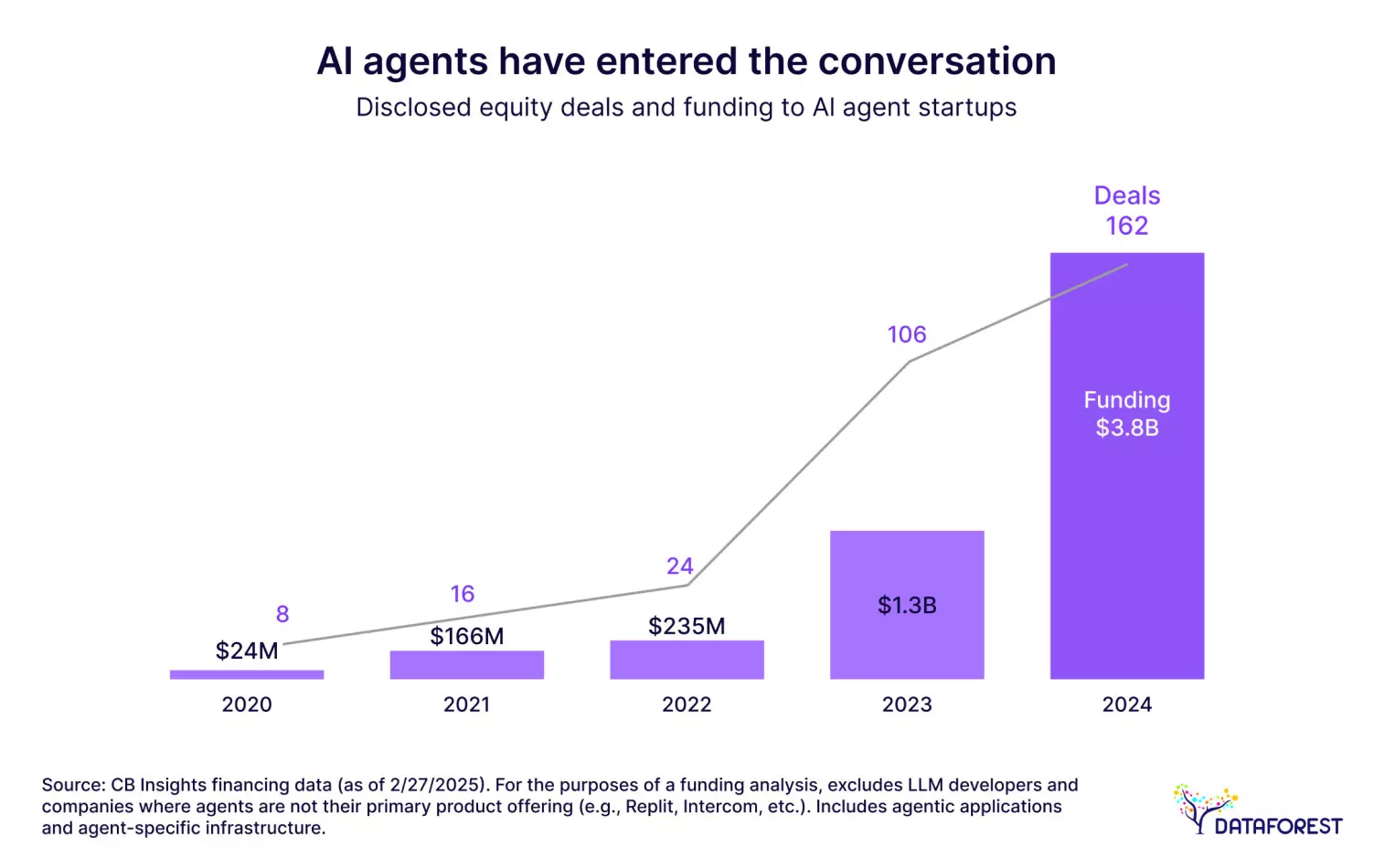
Why Invest in AI Agent Development Now?
Businesses are using the development of AI agents to improve manual labor. These systems manage operations and communicate directly with your data. Then employees can focus on building new tools to help your customers.
The value of autonomous systems
AI agent development helps businesses automate tasks that require logic and decision-making. Traditional software follows rigid rules, but agents adapt to new information. These digital workers connect directly to your databases to perform real actions. Your employees save hours every day by handing off repetitive data tasks. The shift allows your best talent to focus on high-level growth. Professional development services build these systems with security and privacy in mind. A clear strategy for AI agent development keeps your company ahead of competitors.
Industries leading in AI agent adoption
Healthcare providers employ agents to scan medical images for early signs of disease.
Banks deploy these systems to monitor transactions for fraud.
Logistics companies use agents to plan the fastest delivery routes.
Retailers use agents to track inventory levels and adjust pricing based on market shifts.
Manufacturing teams rely on autonomous workers to coordinate supply chains.
The SaaS industry prioritizes AI agent development to write code and run tests faster.
Marketing teams at firms like Amazon use these tools to personalize messages for millions of users.
How to Choose the Right Partner for The Development of An AI Agent?
When choosing a development company, you should dive deep into their expertise and past results. You should evaluate how their custom tools fit into your existing systems while protecting your data. This choice determines whether your automation system will thrive as your business grows or fail at first.
Assessing skills and knowledge
An in-depth technical knowledge that an AI agent development partner will build your agent on a solid and scalable platform. They use tools like LangGraph to create systems that complete complex tasks without fail. Business knowledge is important because the developer understands your unique security and regulatory issues. Companies with a track record in your sector can apply proven solutions to your problems. This combination of skills helps prevent false positives and achieve a high return on investment.
Proven track record and portfolio analysis
A deep portfolio shows a team can manage AI agent development without big mistakes. Case studies tell you if they solved problems for companies like yours. You should look for hard numbers that show a return on investment. Good past results prove the developers can handle the hardest parts of the job. Try to see a live demo of a tool they finished for a real client.
Choosing between custom and ready-made products
Ready-made software offers a fast start for simple business tasks. These products often use fixed rules for your data. You should choose custom AI agent development for complex workflows with specific rules and strict privacy. A tailored agent connects directly to your private company records without outside access. This choice builds a unique asset your rivals cannot buy.
Scalability and system integration
AI agent development must focus on how systems handle a sudden surge in data. A scalable solution allows your digital workers to perform even as your company grows. You should select a partner that bridges the gap between modern AI and your legacy databases. Seamless integration prevents data silos and allows agents to trigger actions in your current software. AI agent development quality results in a flexible architecture that adapts to your future needs.
Data compliance, security, and safety
Agents often have direct access to sensitive company data, so security should be of utmost importance. In order to avoid legal problems, your partner must adhere to important regulations such as GDPR or HIPAA. The best developers use encryption and limit what each agent can see or change. They also create audit logs to track every action the system takes in real time. These steps in developing AI agents will protect your reputation and your privacy.
For business leaders evaluating AI agents, Forbes lists common enterprise agent platforms and outlines organizational priorities when selecting them. These priorities include alignment with business goals, security requirements, and real use cases instead of experimentation.
How Will the Development of AI Agents Solve Common Business Problems?
The AI agent development is helping new companies manage complex tasks across departments. A good partner builds tools that integrate seamlessly with your existing business processes through robust AI software integration. Make sure there is a strong fit between their AI technology stack, approach to AI model training services, and your budget. Experienced AI solution providers will clearly explain how they use machine learning models, deep learning applications, and efficient data processing algorithms to meet your goals.
Customizable and scalable automation
SaaS platforms offer pre-built AI-driven automation, but AI agent development goes further by helping businesses quickly address common business needs with tailored logic. The development of custom AI agents fills this gap by creating digital workers that directly interact with your property's legacy data. With AI agent development, companies can automate complex and unique tasks that conventional software cannot handle.
Fintech and Fraud Detection
The AI agent development stops bank fraud in milliseconds by analyzing real-time data for common spending patterns. Digital agents built via the AI agent development track type speed and driving patterns to detect hackers and unauthorized access attempts. These systems link to your internal database to verify credentials through automated KYC and AML checks enabled by AI agent development. Common agents developed through AI agent development also oversee major operations for chemical fraud detection and illegal money laundering prevention. This real-time protection, driven by AI agent development, keeps your organization compliant with evolving financial regulations while protecting customer assets.
AI Solutions for Marketing
Market agents created through AI agent development use live data to balance supply and demand through smart pricing strategies. These systems, designed via AI agent development, quickly match customers with the right products based on their needs, improving search results and conversions. The AI agent development helps platforms manage customer support and perform key marketing functions. Digital staff built through AI agent development checks internal databases for fraud to ensure a safe trading environment for all users. These agents manage complex workflows such as inventory monitoring and cost adjustments, with AI agent development helping businesses control margins and manage costs more effectively.
AI-enabled business intelligence for businesses
The AI agent development creates systems that analyze all of your company’s data to identify hidden trends. Agents built using AI agent development translate complex numbers into clear reports that any manager can understand. Your team can ask questions in plain English and, through AI agent development, get immediate answers directly from your databases. AI agents powered by AI agent development monitor key metrics around the clock and notify you if there are sudden changes in revenue, demand, or pricing.
Customized solutions for businesses and organizations
Artificial intelligence agents are changing the way companies manage physical assets and human resources.
In logistics, agents monitor shipments in real time and replace drivers when delays occur. These systems integrate with your CRM to update customer records and predict which leads are likely to buy. Job automation tools schedule changes and assign jobs based on employee skills. Developing custom AI agents ensures that these tools work with your own software and rules. As a result of AI agent development, you gain a clear, unified view of operations without switching between multiple dashboards.
How Much Will It Cost to Develop an AI Agent in 2026?
The cost of a digital agent depends on the amount of logic and data that needs to be accessed to perform the tasks. Companies start with a narrow pilot program to test the return on their investment. This method helps you control costs while building a tool that fits your specific process.
Factors affecting the cost of AI agent development
- Complexity of logic and reasoning. Agents that must make multi-step decisions require more engineering than simple chatbots.
- Number of system integrations. Connecting your agent to many private databases and third-party tools raises the total price.
- Data quality and preparation. You will pay more if your team needs to clean and structure messy records before training.
- Security and compliance needs. Meeting strict legal standards like GDPR or HIPAA adds to the final bill for AI agent development.
- Token and hosting fees. Ongoing costs depend on how many tasks your agent performs and the specific models you choose to use.
Budgeting and ROI expectations
Set a budget for initial builds and long-term API costs. High-impact projects often pay for themselves within the first year. Agents cut manual data entry tasks to provide the most value. Professional AI agent development helps you track gains through metrics like error rates. Scale your systems across different teams to reach a three-year return.
Strategic AI investment
Selecting a development strategy for AI agents depends on the scale of your operations and the budget you allocate for digital transformation. While mid-sized firms focus on immediate efficiency gains, large enterprises prioritize long-term system optimization and global scalability. Understanding the cost differences between the groups helps you choose the most effective path for the specific business needs.
If you think here is your case, then arrange a call.
How to Avoid Expensive Mistakes?
Hiring an AI team requires looking at their past performance and your current goals, especially when investing in AI product development and custom AI agent development. Poor planning leads to software failures and high costs after the launch date, particularly in complex AI software engineering projects. You need to control your code and data during AI agent development to support AI-driven business transformation and long-term growth.
Choosing the right development team
Check out the group for information on your revenue streams, customers, and their experience delivering AI automation services, AI consulting services, and scalable AI solutions. Inconsistent goals lead to software failures and lost revenue, especially when deploying enterprise AI agents or intelligent virtual agents. Ask for case studies related to your specific business, current scale, and use cases such as AI-powered workflow automation, AI-powered customer experience, or AI-powered customer support.
Support after launch
New programs—especially cloud-based AI services and production-grade virtual assistant technology—often crash or stop working after the first month if poorly supported. These failures result in lost time and high operational costs. A contract with clear rules for regular repairs, upgrades, and AI deployment strategies is critical.
A company without a long-term plan for maintaining conversational AI development, voice recognition software, or natural language processing (NLP) pipelines may leave you with broken tools and declining performance. Reliable partners plan for continuous improvement and AI-driven decision-making after go-live.
Plan for future growth
Buy tools that have open standards and clear data ownership rules. The lock prevents you from changing providers or expanding your technology portfolio. The company should use modular code across each part of the system, enabling faster upgrades to predictive analytics tools and new enterprise AI agents. This configuration allows your team to change components as your needs change. Request full access to documents and API keys from the start. You need to have the code to stay ahead of the curve in a changing market. Ownership of the codebase is essential to remain competitive and compliant with AI ethics and compliance requirements in a fast-changing market.
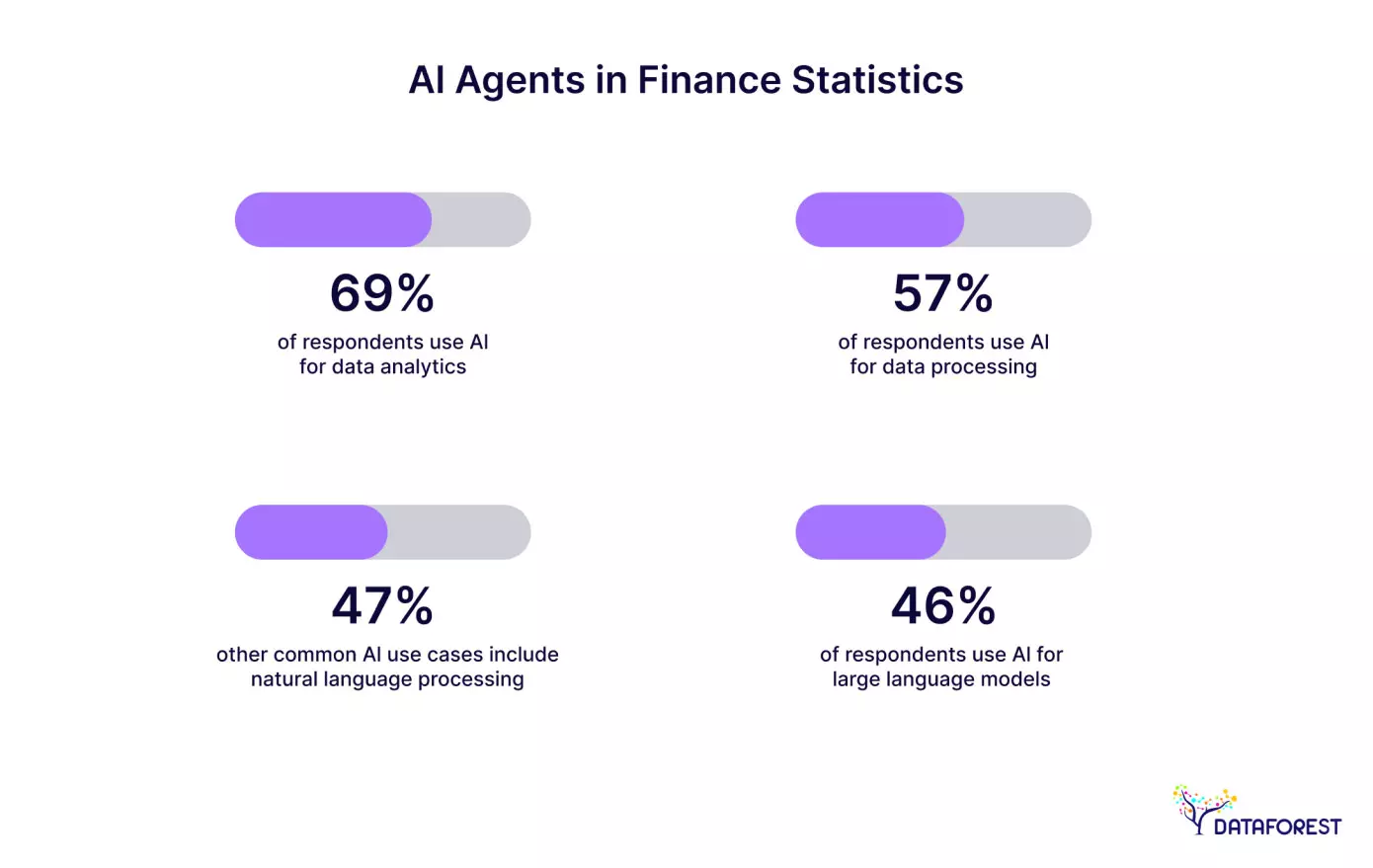
How can your organization effectively deploy AI agents?
A structured plan helps your organization migrate from old tools to new AI systems. Prepare your people and your data before the first line of code is written. These steps build a solid foundation for the long-term growth and advancement of the technology.
Assess capacity: Check your current data type and hardware limits today. These checks find gaps in your system before you spend money.
Build a roadmap: Set specific business goals and set a specific timeline for each step. This strategy encourages the technical team to do the most valuable work.
Training and process: Show your employees how to use new tools in their daily work. Transform your old processes to incorporate the speed and power of AI agents.
Choosing an AI Development Partner
Choose an industry for your AI project. Check out these great reasons. They reduce technical problems and overheads.
- Check out their completed work. They should build AI for teams in your field (AI chatbot developers).
- Check out their teamwork skills. They need to build and upgrade AI models with new technology.
- Talk to customers in advance. Learn about reliability, deadlines, and bug fixes.
- Check their security seals, like SOC2 and GDPR. They protect your company's data.
- Check out their post-release support. Your AI is running and looking like new.
A Medium piece on strategy consulting reform notes that firms, including McKinsey, BCG, Bain, EY, KPMG, and Deloitte, are expanding AI specialist teams and acquisitions to support clients through AI adoption. This underlines the value of partners with deep technical teams and industry expertise.
DATAFOREST AI Team Snapshot
DATAFOREST combines data science, software engineering, and product design to build AI agents.
The leadership has direct experience in banking, e-commerce, and cybersecurity, which guides practical deployments. The core team exceeds 100+ engineers, with product managers and MLOps specialists on staff. We deliver AI agent solutions, automation flows, and cloud-ready data platforms for enterprise clients. Please complete the form to know more about our AI agent development possibilities.
Questions on AI Agent Development
What are the key criteria when choosing an AI agent development company?
Choose a company that has built AI agents for businesses like yours. Check that their engineers can deploy and scale models with modern tools. Ask their past clients about missed deadlines and how they fixed problems. Confirm they hold SOC2 and GDPR certifications to protect your data. Make sure they offer support after launch to keep your agent running.
How important are a company's case studies and portfolio when choosing an AI agent developer?
A company's case studies show you what they can actually build. Review their portfolio to see if they solved problems like yours. Ask for proof that their agents work in production, not just demos. Look for details about accuracy, speed, and how many users the system handles. If they hide their work or provide vague descriptions, keep looking.
How do I determine if my business needs a custom AI agent or if an off-the-shelf solution will suffice?
Off-the-shelf tools work if your task is standard, like answering customer questions or scheduling meetings. You need a custom agent if your workflow is unique, your data is proprietary, or you must integrate with legacy systems. Ask yourself: does an existing product handle my exact use case without major workarounds? Custom agents cost more and take longer to build, but they fit your process exactly. Test a ready-made solution first; build custom only if it fails.




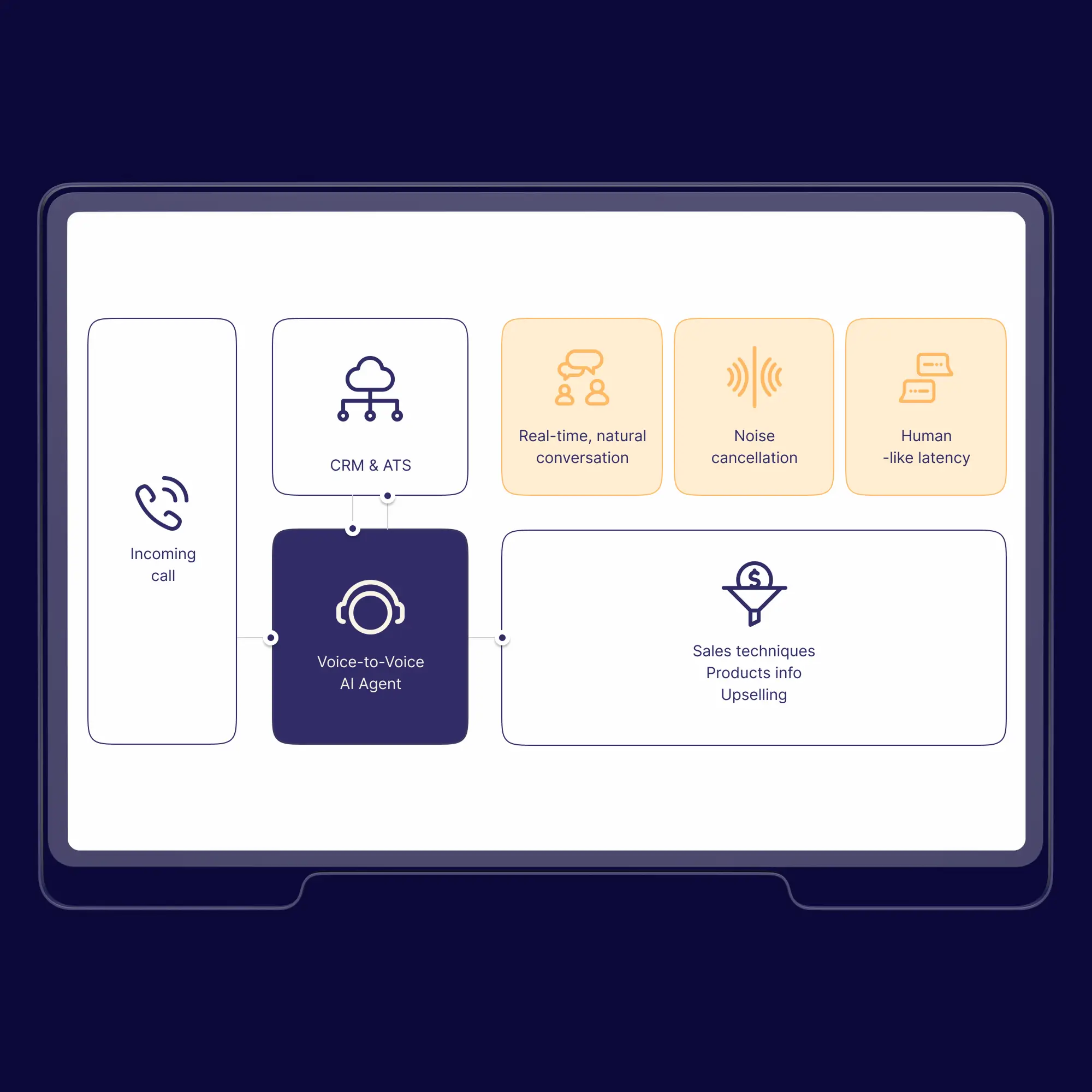


.svg)
.webp)
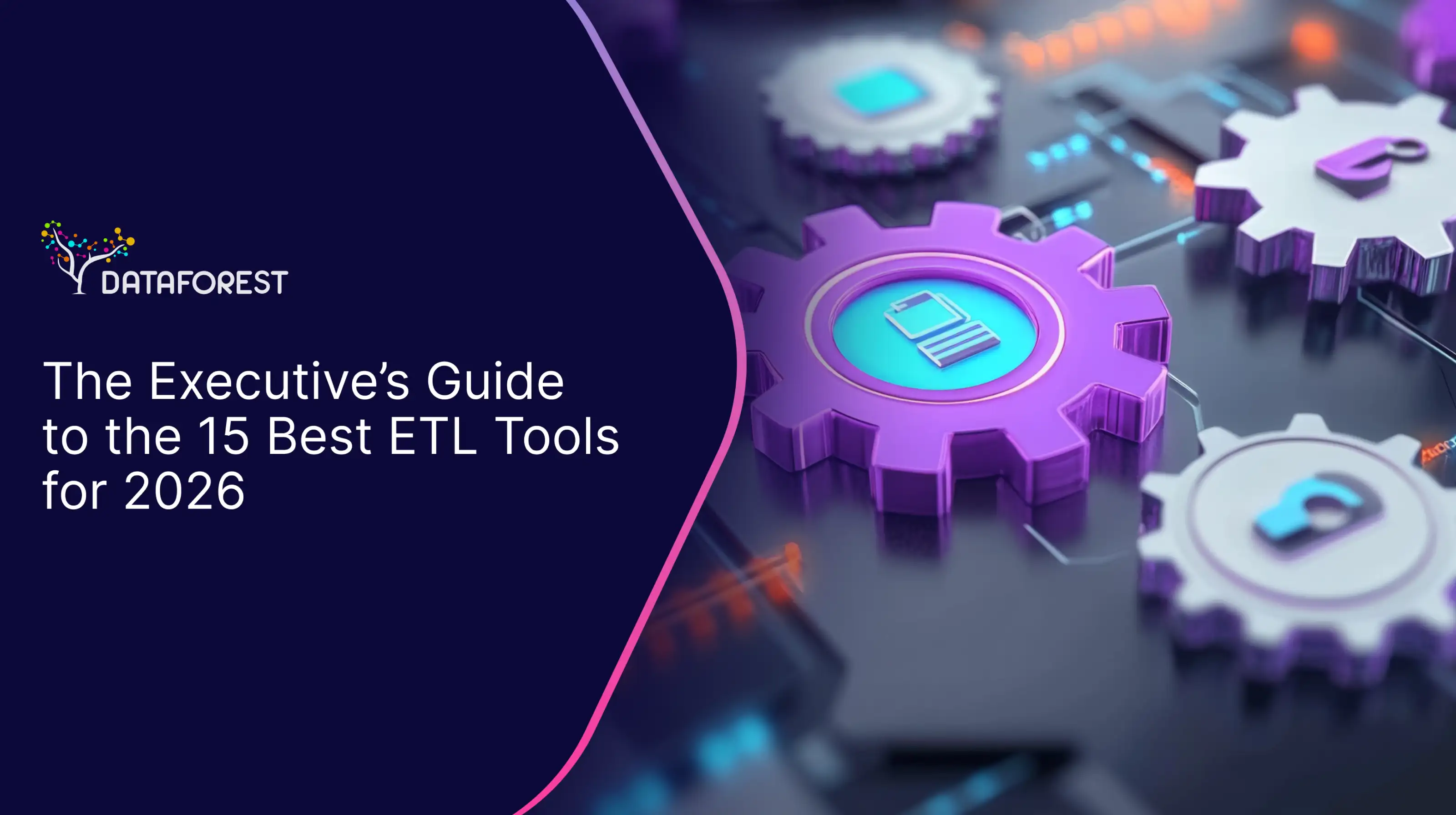
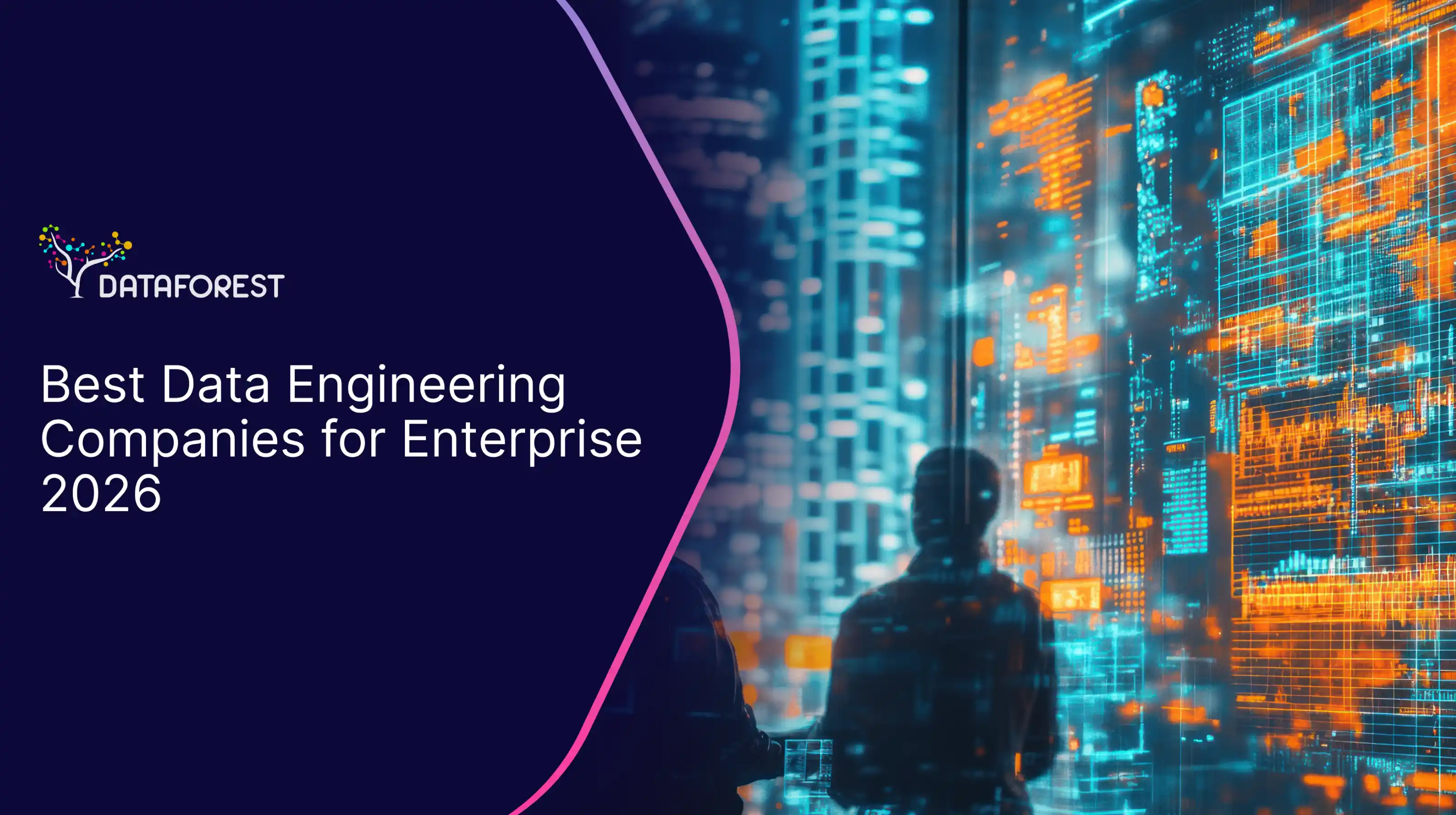
.webp)












